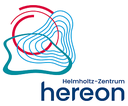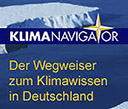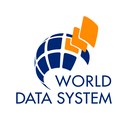The DKRZ is a member of several national and international associations. DKRZ's network includes various institutes and other entities in the area of Climate Research as well as in the field of Informatics/High Performance Computing.
Climate Research
 |
The Max-Planck Institute for Meteorology (MPI-M) is one of the most renowned instutes worldwide in the area of Earth system modeling. MPI-M develops all components needed to build and run coupled Earth system models. While the Max-Planck Society is DKRZ's largest shareholder, the MPI-M is one of the most important partners of DKRZ and the largest user of DKRZ's facilities and services. |
|
The University of Hamburg's cluster of excellence Climate, Climatic Change, and Society" (CLICCS) is funded by the German Research Foundation. In addition to the university, the Max Planck Institute for Meteorology, the Helmholtz-Zentrum Hereon, and the DKRZ are involved in CliSAP. |
|
 |
The Center for Earth System Research and Sustainability (CEN) brings together the expertise of nine institutes and facilities of the University of Hamburg, who is also shareholder of DKRZ Members include oceanographers, meteorologists, marine biologists, geophysicists, geologists, soil scientists, geographers and biogeochemists, as well as researchers in the business and social sciences, all of whom are actively engaged in climate, environmental and earth system research. As such, CEN links the natural and social sciences – in research, education, and in promoting and supporting the next generation of researchers. |
 |
The research activities of the Institute of Coastal Research at the Helmholtz-Zentrum Hereon span both the natural and human dimensions of coastal dynamics, analysing the coastal system in global and regional contexts, conducting assessments of the state and sensitivity of the coastal system to natural and human influences, and developing scenarios of future coastal options. Hereon is shareholder and user of DKRZ. |
|
The Alfred Wegener Institute - Helmholtz Centre for Polar and Marine Research (AWI) carries out research in the Arctic and Antarctic as well as in the high and mid latitude oceans. The institute coordinates German polar research and makes available to national and international science important infrastructure, e.g. the research icebreaker “Polarstern” and research stations in the Arctic and Antarctic. The AWI is shareholder and user of DKRZ. |
|
|
The Climate Service Center Germany, or short GERICS, offers products, advisory services and decision-relevant knowledge based on sound scientific knowledge in order to support government, administration and business in their efforts to adapt to climate change. |
|
|
In 2009, the Cluster of Excellence CliSAP gave the impetus for the creation of a climate research network in Hamburg. The initial partners were soon joined by further institutes, such as the German Weather Service and Federal Maritime and Hydrographic Agency, marking the birth of the KlimaCampus Hamburg. Here, experts collaborate on various aspects of climate, climate change and its impacts, e.g. in joint projects like the ongoing KlimaCampus Colloquium. |
|
|
The Max-Planck Institute for Biogeochemistry contributes to the understanding of how living organisms – including humans - exchange fundamental resources like water, carbon, nitrogen and energy with their environment, and how this affects and responds to global climate and environmental change. For its modelling activities the institute uses DKRZ's facilities. |
|
 |
Current research at the Max Planck Institute for Chemistry in Mainz aims at an integral understanding of chemical processes in the Earth system, particularly in the atmosphere and biosphere. For its modelling activities the institute uses DKRZ's facilities. |
 |
The Institute of Atmospheric Physics investigates the physics and chemistry of the global atmosphere from the Earth's surface up to the upper boundary of the middle atmosphere at about 120 km height. The resulting data are quite important for climate models. For its own climate modelling activities the institute also uses DKRZ's facilities. |
|
Among other areas, the research Institute of Meteorology at the Freie Universität Berlin (FU Berlin) focuses on interactions in the climate system. |
|
 |
The GEOMAR Helmholtz Centre for Ocean Research Kiel is one of the world’s leading institutes in the field of marine sciences. The institute investigates the chemical, physical, biological and geological processes of the seafloor, oceans and ocean margins and their interactions with the atmosphere. |
 |
TheGerman Climate Consortium (Deutsches Klima-Konsortium e.V. - DKK) represents the essential parts of German climate and climate impact research. Under the guiding principle “Research for Society, Economy and the Environment”, DKK brings together twenty-one internationally renowned research organizations, amongst them DKRZ. These organizations make an important contribution to recognize and respond to climate change and climate impacts. |
|
In 2001, a large number of European climate modeling groups joined to form the European Network for Earth System Modeling (ENES) with the aim of accelerating the development of Earth system models for climate through the exchange of model software and results and improving high performance computing facilities. Four European projects initiated by ENES are ongoing: COMBINE, METAFOR, EUCLIPSE and IS-ENES. DKRZ contributes to METAFOR, EUCLIPSE and IS-ENES. The ENES newsletter, published on a quarterly base, aims to keep interested parties up-to-date with the latest news regarding the activities of the ENES community. |
|
|
The ICON model, which is jointly developed by the Max Planck Institute for Meteorology (MPI-M) and the German Meteorological service (DWD), will serve as the basis for numerous future research projects and simulations. DKRZ is involved in development activities in several areas (i.a. software engineering, model coupling, program optimization and visualization). |
|
|
The European Centre for Medium-Range Weather Forecasts (ECMWF) Forecasts is an important partner for DKRZ in various infrastructure projects and also a provider of important data sets such as the ERA5 reanalysis data. |
|
 |
The Klimanavigator is a German knowledge portal of climate research and adaptation initiatives. More than 60 German institutes - including DKRZ - are represented in this portal, which intends to collect and serve information at a level that also non-specialists can easily understand. (Only available in German)
|
Informatics / High Performance Computing / Research Data Infrastructures
 |
In 2012 the University of Hamburg conjointly with the DKRZ, the Max Planck Institute for Meteorology, the excellence cluster CLISAP and the Technical University Harburg founded the Lothar Collatz School for Computing in Science, which promotes computational education and research at the interface of Mathematics, Computer Science and Computational Sciences. |
 |
The Gauß-Allianz for supercomputing is a cooperation of the leading German high performance computing centers – among them DKRZ. It establishes the requirements for a sustainable and efficient use of supercomputing resources, coordinates the HPC related activities of its members and implements the BMBF study “HPC in Germany – Reasons for a Strategic Alliance”. The newsletter Infobrief (in German), published by the Gauß-Allianz, informs about the latest news and developments of the HPC community. |
|
DataCite is an international consortium for the publication of scientific data. It brings together the datasets community to collaboratively address the challenges of making research data visible and accessible. WDCC publishes its data at DataCite. Further information: here. |
|
|
The German ORACLE user group (DOAG) is an organized representation from users of Oracle products in Germany. DOAG aims at the exchange of experience and transfer of knowledge about usage, handling and experiences with Oracle's products, as well as the representation of the interests of the user towards the manufacturer. |
|
 |
The European ExaScale Software Initiative (EESI) is building a roadmap to address the challenge of introducing Exascale HPC systems in Europe until 2020. This is an effort of critical technological importance for computationally intensive simulations in climate research and other sciences. |
|
The EUDAT Collaborative Data Infrastructure (or EUDAT CDI) is one of the largest infrastructures of integrated data services and resources supporting research in Europe. It is sustained by a network of more than 20 European research organisations, data and computing centers. |
|
 |
The "International Science Council (ISC)" supports the World Data System – including the World Data System for Climate (WDCC) at DKRZ in order to support an international scientific exchange. |
 |
The IPCC Data Distribution Centre (IPCC DDC) supports the work of the IPCC through data management in accordance with the FAIR Guidelines. Through various data services, the DDC provides relevant climate change data to the IPCC authors. At the end of each reporting cycle, the DDC makes these underlying data for the IPCC reports available to further data users. The DDC is jointly managed by DKRZ and currently 3 other international DDC partners. The DDC is overseen by IPCC TG-Data. |
|
EPIC (short for: European persistent identifier consortium) was founded in 2009 by a consortium of four European partners (among them DKRZ) in order to provide PID Services for the European Research Community, based on the handle system for the allocation and resolution of persistent identifiers. |
|
 |
The Computer Systems Advisory Board BAR of the Max Planck Society is a panel of experts who advises the president of the MPG, the general administration and the Max Planck institutes on the fundamental strategy with regard to the use of computer systems and their acquisitions. Currently, the panel is made up of 20 members and 5 permanent external guests, among them Prof. Thomas Ludwig. |
|
The ZKI (short for: Zentren für Kommunikation und Informationsverarbeitung in Lehre und Forschung; Centers for communication and information processing in teaching and research) is a network of German computing centers at universities and at technical colleges, as well as of institutions for large-scale research and research funding and of industrial IT companies. |
